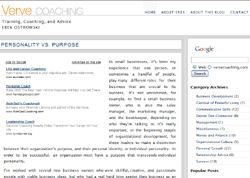Getting Out of Debt (Part 1)
Many people have come to me for coaching on how to get out of debt. The overwhelming majority of them share a common perspective and line of thinking when it comes to addressing their personal finances. It usually sounds something like this: “As soon as I start making my millions, I can pay off my debt” or “I have too much debt to pay off anyway, so I’ll worry about it later when I’m making more money”. There are many versions of this conversation, but they’re all really saying the same thing.
What they’re saying is that they’d rather keep hoping that things will suddenly, magically, and drastically improve than to change their habits and their thinking, and confront the reality of their financial situation. Having been there myself a few years ago, I’ve developed an intimate familiarity with this point of view and I can recognize it instantly in others. I’ve never met someone with this mindset whose cash cow is descending imminently upon them, myself included. They may be out there, but I’ve never met one. Far more often than not, this kind of thinking tends to stand only on hope, denial, and a habitual (sometimes even inherited) relationship to money and personal finance. In our culture, we’re constantly bombarded with messages that say that instant wealth is a real possibility, and that somehow, the American Dream will rescue us from reality if only we just believe.
When I start working with clients who want to get out of debt, I quickly confront them with the bad news. There will be no millions until you change your mindset and your debt management practices. No Ferraris, no mansions staffed with servants, no private jets, and no million dollar wardrobes until you summon the strength and readiness to confront reality, give up living in hope, and adopt a new mindset of careful planning, disciplined spending, and practical income development.
You have to adopt the practices and disciplines that lead to debt reduction to create a solid foundation for building wealth. With no foundation to build on, your personal finance demons will inevitably consume whatever level of wealth you acquire in a gleeful bath of fire. Instead of accumulating resources, your potential wealth will be absorbed as you adjust your habits of consumption to match and then exceed your means. For most of us, this is the American Reality. Wake up and stop waiting to be rescued, or live in perpetual debt. Sure it may sound grim, but when I have this conversation with my clients, they embrace the truth that they’ve known deep down and avoided for years, and they begin to take responsibility for building a solid future.
There are a lot of great, intelligent, and successful people out there who talk about attracting or generating abundance, wealth, and affluence. This conversation is not about attracting abundance in our lives. At least not at this stage. For those of us living in a state of hope and denial and waiting to be rescued, we have to start taking practical steps to confront reality and eliminate our debt before we can even explore the notion of abundance, wealth, and affluence. Against a background of hope and avoidance, a conversation for abundance quickly becomes another instrument of denial. We simply don’t have a mature enough relationship to abundance to really understand it yet. Abundance is our natural state. It’s a natural expression of human creativity and harmonious living. It occurs naturally in our lives when we summon the courage to abandon hope and embrace our lives as they actually are right now.
Now, let’s get practical. Getting out of debt is about income and expenses. If you remember this one simple lesson, you’ll be able to keep coming back to it to true yourself up throughout the process of eliminating your debt. Getting out of debt is about making sure you have more income than you do expenses…more coming in than going out. There are only two ways to take this lesson and apply it in your life. The first way is by developing your income. The second way is by reducing your expenses.
